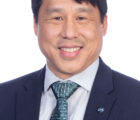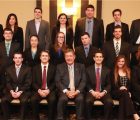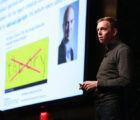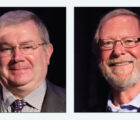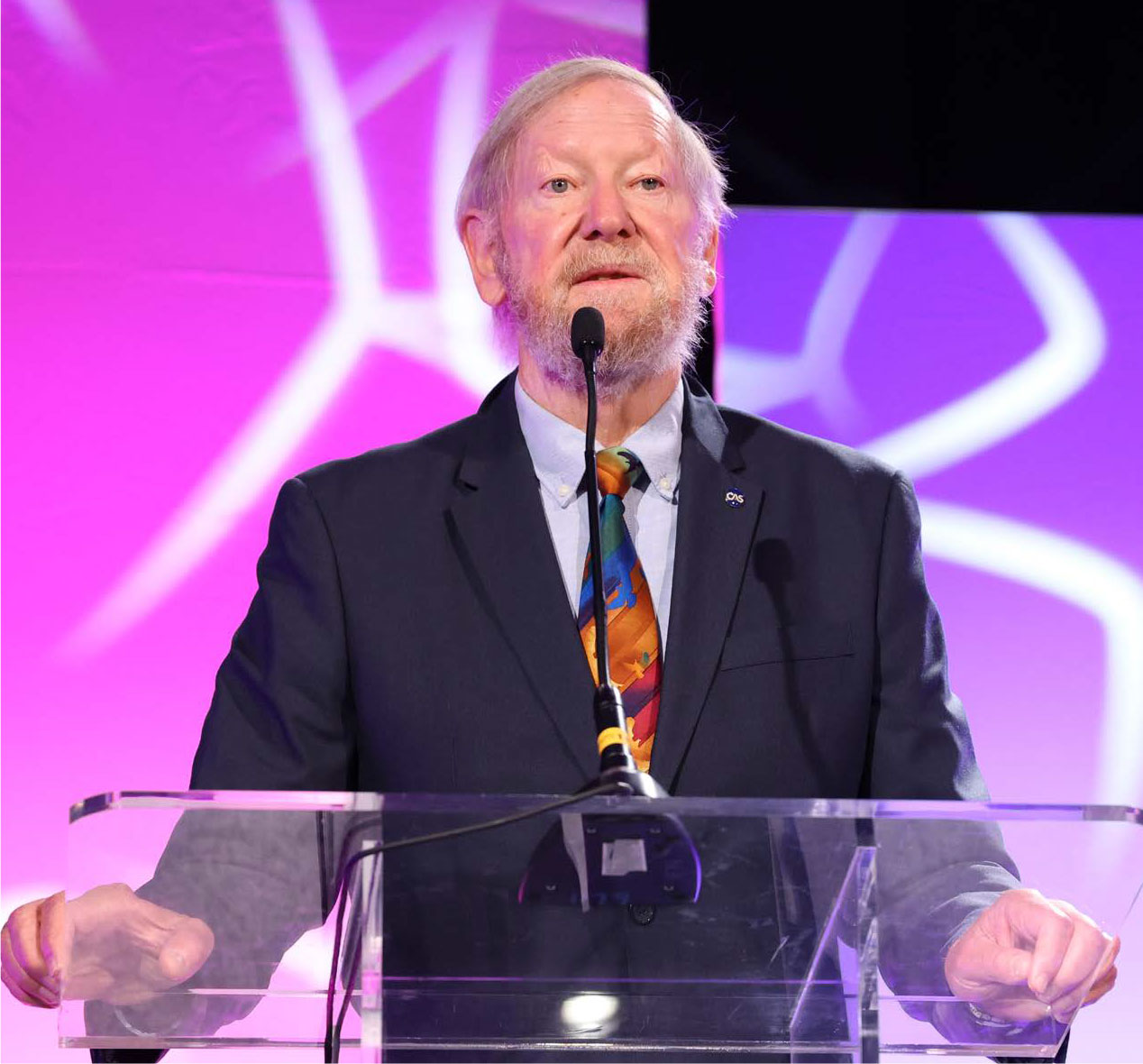The following is Al Beer’s Address to New Members given at the CAS Annual Meeting in Anaheim, California, on November 6, 2017.
Thank you, Nancy [Braithwaite], for allowing me the privilege of addressing the new members.
As I was preparing for this moment, I reflected on the fact that this is, in many ways, a commencement speech. Yet unlike high school and college graduations, which generally celebrated institutions you were leaving, this is truly the “beginning” of your career as a member of the Casualty Actuarial Society. And it was in that vein that I reflected on the derivation of the term “commencement speech” which, as I am sure you know, is derived from the Latin which means, loosely translated, “Some old guy rambles on for 10 minutes about things you will forget before you even leave the room.”
Ladies and gentlemen, it is to that high standard that I aspire this morning.
It has become fashionable to ask the question, “What valuable, sage advice would you give to a younger you?” Well, preparing my remarks today, I thought about what advice I would give a young Al Beer in May 1980, sitting in the audience as one of 12 new Fellows being admitted to the CAS.
And I came up with three pieces of advice that I would absolutely impress upon him:
Number 1 — There’s going to be a stock offering for a company called Apple … BUY IT! (Well, you said it should be valuable advice!)
Number 2 — Now, listen carefully. You can’t comprehend what I am about to tell you, but trust me, it will save you hours of agony and heartache. PLEASE be sure to regularly back up your hard drive! (You have no idea how valuable that little nugget will be.)
But seriously, my third piece of advice to him would be the most valuable of all. And it would be the same advice I would give to you right now.
Number 3 — Be proud of yourself.
By that I mean, every day you should be able to take inventory of what you have done in your life and how you achieved it. It would be silly of me to preach to you about hard work and dedication. You wouldn’t be in this room today if you hadn’t already mastered these traits. However, to truly be proud of yourself, I believe you rigidly follow a few basic principles, the most important of which follows next.
Honesty and Integrity
You should continually judge yourself based on every action you take. Whether it be on the personal or professional level, honesty and integrity will always be the most important attributes you can possess. I may be a bit naïve, but I believe that dishonesty is just a bad habit that some people acquire. Little white lies all too easily become huge lies and soon a career is permeated with dishonesty. I remember a great piece of advice I received from one of my favorite business mentors: “Not everyone who cheats in business cheats in golf, but I guarantee you, if someone cheats in golf, they will cheat in business!” His point being that if someone is so driven that they feel they must cut corners on the insignificant things in life, they will certainly have no problem cutting corners on what really matters. I know very well how hard it is to say, “It was my fault”, or “It was my decision” or “I’m sorry.” But you will be amazed at how important a role those phrases will play in your life and your career. So, work very hard every day to maintain your reputation for honesty and integrity. You will never have a more valuable possession.
I never needed a servant to whisper in my ear to keep me humble. God gave us three children to do that.
Humility
It might surprise you, but an important element of being “proud of yourself” is humility. All of the most impressive people in my life have shown a strong sense of humility.
Your celebration today is just one of many successes you will experience in your lifetime. And you have every right to feel an enormous sense of pride in your accomplishment. But always balance that with the realization that one of the most important qualities of leadership is humility. People often confuse being humble with being meek. The best expression I have heard is from Jim Collins’ book, Good to Great: “Humility is pride without arrogance.” The greatest managers and leaders I have been blessed to work with are not afraid to ask, “What do you think?” or “How am I doing?”
My appreciation for the importance of humility began long ago. The greatest teacher I ever had was my high school Latin teacher. (Now you have to be VERY GOOD to stimulate students in Latin.) What made him exceptional was that, in addition to discussing the conjugation of verbs, he also brought the glory that was Rome into the classroom. One lecture in particular stands out in my mind. With misty eyes, he described the Roman triumphus, a civil ceremony and religious rite of ancient Rome, held to publicly celebrate and sanctify the success of a military commander who had led Roman forces to victory. On the day of his triumph, the general wore a crown of laurel and a gold-embroidered toga. During this ceremonial adulation by the populus, he rode in a four-horse golden chariot through the streets of Rome alone, except for a single servant who had one and only one responsibility — to continually whisper in the ear of the general, “Sic transit gloria mundi” — “Worldly glory is fleeting.” The Romans knew the power and importance of humility.
Now, I never needed a servant to whisper in my ear to keep me humble. God gave us three children to do that. A quick example: I was getting a noon flight out of LaGuardia one day and, over breakfast, my son, Kevin, asked for a ride to school. Now, I warn all of you that every once in a while you will be overcome by a demonic urge to channel your parents. Well, that was the moment it happened to me. For whatever reason, I began to hear myself spout the old anecdote, “When Abraham Lincoln was your age, he would walk to school every day, uphill, both ways, in the snow!” At which point Kevin said: “And when he was your age, Dad, he was president of the United States!” Now that’s how I am kept humble!
Don’t waste your time defining “success”
You have heard it a thousand times, but I truly believe it: “Success is defined by the quality of the journey, not the destination!” My father worked for the New York City Transit Authority for 45 years. During that time, he never earned more than $30,000 a year. But I look at him as one of the most successful people I have ever known. He and my mother put two kids through college, helping their daughter have a very rewarding nursing career and somehow helping their mischievous son become an actuary. And when I was growing up, on Saturdays he would invest 15 cents in a token (he would ride free) and spend the morning with me traveling around the subways of New York teaching me all about the nuances of the IRT, IND and BMT subway lines. You have probably heard stories of wealthy executives taking their families on a vacation to a villa in Tuscany for a week. Sounds impressive. But I challenge them to create one-tenth of the memories and bonding experiences that I had as a kid, riding with my father for 15 cents under the streets of New York. Now, that is a successful person!
That’s why I always smile when asked about “the secret to climbing the ladder of success.” Success to me is certainly not a ladder. If anything, it’s a jungle gym, three-dimensional monkey bars, a Rubik’s cube of framed pipes and empty space. Why does every move you make have to be carefully planned and classified as “a successful one”? Though I was brought up in an Irish Catholic family, one of my favorite expressions is an old Yiddish proverb: “Man plans, God laughs.” Let me share with you some of my journey.
I was a 22-year-old with a graduate degree in mathematics who couldn’t find a teaching job, loading baggage onto planes at Kennedy Airport. A good friend from high school was working at Insurance Services Office and reminded me that, since I was engaged, I probably should think about getting a better job. He talked someone into interviewing me and, as they say, the rest is history. Except it wasn’t. I spent the next four years taking exams and learning a lot about the business. Then one day I received a call from the president of The College of Insurance. He said they needed someone to develop a property-casualty actuarial department and thought I would be a good teacher. That night, my pregnant wife Mary calmly listened to all my reservations, including giving up a job paying $22,000 a year for one paying $19,000. She finally clinched the deal when she said, “I don’t want you moping around at 40, complaining that you should have taken the chance to do what you have always wanted to do.” And so, in the most circuitous route possible, I became a teacher. Those “ladder of success” devotees would say it was a “poor career move.” To me it was just jumping at an angle to another bar on the gym. Soon, for obvious reasons, I decided to try to supplement my income, and I began a small consulting practice. God laughed and six years later I had the opportunity to leave the academic department that I had built and become a partner in Tillinghast, the actuarial consulting firm. Four years after that, I was offered the role of chief actuary at one of my clients’ reinsurance companies. I nervously shared with Mary my trepidation about leaving consulting. She calmly talked me through it, and I eventually decided to jump to a bar that was hanging in a completely new direction. But let’s take a humility break! After the decision, with the family gathered around the dinner, I explained that I was entering the reinsurance business. My dear son, Tommy, asked, “What is reinsurance?” In my most professorial tone, I explained, “Reinsurance is the insurance of insurance companies.” At which point Tommy smirked, “Ouch! Boring squared!”
The next 10 years were kind to me, finding me assuming a variety of corporate and underwriting roles, culminating with me deciding to retire as president of Munich Re America. But I only tell you that to emphasize that the next leap across the gym was, in my opinion, the most successful! I am now on the faculty of St. John’s University, waking up every morning nervously anticipating the challenge of keeping up with bright 20-year-old actuarial students!
Still think of success as a ladder?
To me the secret was to enjoy what I did, who I worked for and who I worked with. Every one of my employment decisions was based on those three factors. I am not so naïve as to think everyone will always have the perfect job. But there is no reason to punish yourself (and your loved ones) by staying in an aggravating situation. So enjoy what you do! Don’t settle. You can never be good at something you hate.
Which leads to my last point:
Never, ever, stop learning
My children and my students are very familiar with a graduation card that I am fond of giving. It reads, “How does it feel knowing that everything you just spent four years memorizing can be looked up on Google in five minutes?” This jibe is based upon a gross misunderstanding of what college is meant to provide. I have bored my children and students to death, continually preaching that the secret to educational and professional success is “learning to learn.” If you think a college education consists of learning that the Battle of Hastings occurred in 1066, you are sadly mistaken. Hopefully, you have developed an ability to carefully synthesize information from a variety of sources and reach sound conclusions. When my daughter, Katie, was an undergraduate, she was majoring in psychology and unsure of what she wanted to do with her life. I encouraged her to go to law school. She responded that she knew nothing about being a lawyer. I told her that wasn’t the point. Law school would teach her to think in an incredibly analytical way, regardless of whether or not she made it her career. To this day, she says it was the best advice I gave her.
Drones, cyberrisk, terrorism, climate change — these are just a few examples of risk management topics that actuaries are better prepared to tackle than any other profession.
Your Associateship and Fellowship designations are testaments to the fact that you have mastered certain fundamentals of actuarial education. Now the real actuarial work begins in applying that education to the real world. One quick example: There are a handful of people in this audience who took exams during the ’70s and recall reading a paper by Luther Tarbell. The paper examines the appropriateness of applying auto physical damage insurance to the peril of the erosion of the paint on a car by the kicking of a horse pulling a horse-drawn vehicle. You can rightly ask how that can help you deal with the evolving phenomenon of autonomous vehicles today. But the point is that your education (and mine) was never intended to train you to merely replicate the past. Your challenge is to adapt a handful of fundamental principles in order to apply them to the new and exciting challenges that will arise during your career. We, as a society, desperately need your enthusiasm and creativity to help deal with issues that never existed before. Drones, cyberrisk, terrorism, climate change — these are just a few examples of risk management topics that actuaries are better prepared to tackle than any other profession. And to do that you need to constantly improve your skill set by continual learning, whether it be by formal continuing education programs or working on projects with others who can give you the significant benefit of their experience. In particular, every one of you should consider getting involved in some CAS committee work. This is a great organization made greater by the contributions of its volunteers and you will be amazed at the value you receive from working with your peers. So, to be great at what you do, never stop learning … never!
So, I want to conclude by offering you congratulations and good luck. For what you have accomplished, the CAS is immensely proud of you. Now spend the rest of your life making yourself proud!
Al Beer, FCAS, Ph.D, is a past president of the CAS. He serves as an assistant professor and member of the faculty of St. John’s University’s School of Risk Management and Actuarial Science at the Peter J. Tobin College of Business in New York.



